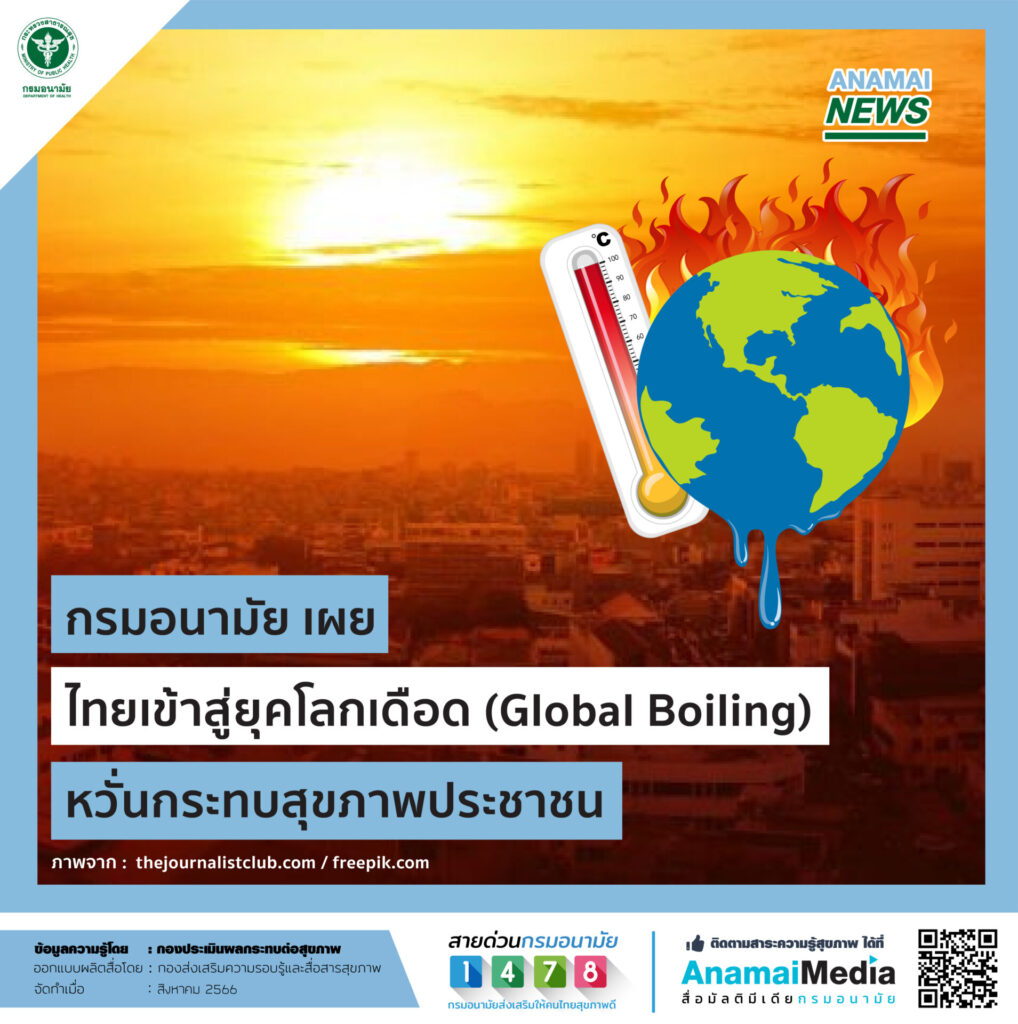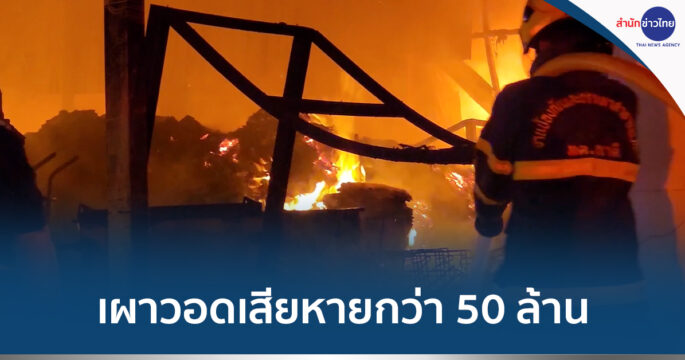BANGKOK, Aug 23 (TNA) – As the United Nations (UN) has warns hottest July ever signals ‘era of global boiling has arrived, in Thailand, the average temperature this year is trending upwards by 1.5 degrees Celsius compared to the previous year, raising concerns over health risks.
The highest recorded temperature in Thailand, 44.6 degrees Celsius, was reported in April in Tak province. As a response, authorities are advising the public and at-risk groups to adapt and reduce health risks.
Dr. Suwanchai Wattanayingcharoenchai, the Director-General of the Department of Health, stated that the UN’s notification about climate change is concerning. It revealed that global warming has come to an end, and global boiling has begun. Data collected consistently since 2015 to 2022 shows that the highest average global temperatures occurred during this period, with Asian regions experiencing temperatures higher than the 30-year average in 2022.
This alarming trend poses various risks, including forest fires, droughts, sudden floods, and their increasing severity. It also has a significant impact on public health, causing illnesses due to air pollution, injuries, and fatalities from floods, and heat-related deaths.

Dr. Suwanchai went on to say that in Thailand, the year 2022 saw a worrying trend, with the highest average temperature increasing by 1.5 degrees Celsius compared to the previous year. On April 16, 2022, Tak province recorded a scorching 44.6 degrees Celsius, categorizing it as dangerously high (temperatures above 43 degrees Celsius). This trend is expected to continue through April 2024, with the El Niño phenomenon playing a significant role. The World Meteorological Organization (WMO) also notes that July was the hottest month on record, and Asia remains the most disaster-prone region in the world.
The highest recorded temperature in Thailand, 44.6 degrees Celsius, was reported in April in Tak province. As a response, authorities are advising the public and at-risk groups to adapt and reduce health risks.
Furthermore, Dr. Suwanchai emphasized that Thailand is expected to witness a rise in heat-related deaths among the elderly, with an estimated 58 per 100,000 population or 14,000 individuals within the next 57 years.
In response to these alarming developments, the Department of Health advises citizens to prepare for climate change by reducing greenhouse gas emissions, such as reducing plastic usage, minimizing air pollution, conserving energy, reducing household waste, and adopting clean or renewable energy sources.
Additionally, individuals should adapt to changing weather conditions by staying informed about weather forecasts, drinking plenty of clean water during hot weather, wearing light-colored clothing with good ventilation, and avoiding alcoholic beverages and sugary drinks. Vulnerable groups such as children, pregnant women, and the elderly should have close supervision and keep the emergency hotline number 1669 ready, he said. (TNA)














